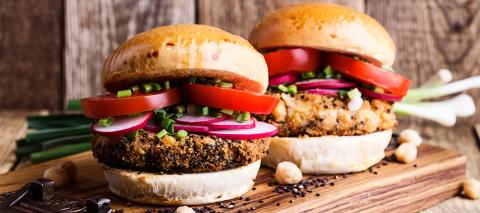
Training for a half marathon is a serious commitment that requires not only dedication and perseverance but also a solid nutrition plan to support your physical efforts. What you eat plays a crucial role in your performance, recovery, and overall ability to complete your training program successfully. The right diet helps improve endurance, maintain energy levels, and prevent injuries.
In this article, we’ll explore what you should be eating before, during, and after your half marathon training to fuel your body and optimize your results.
Running a half marathon (13.1 miles) places a significant demand on your body. Your muscles need to repair after long runs, your energy stores must be replenished, and you need to stay hydrated to prevent fatigue and cramping. The food you eat can directly impact:
A balanced diet for half marathon training should consist of three main macronutrients: carbohydrates, proteins, and fats. Each plays a vital role in supporting your training.
Carbs are the main energy source for endurance athletes, and they become even more important during long runs. Your body stores carbohydrates in the form of glycogen in muscles and the liver, which provides quick energy during exercise.

Pre-Run Carb Loading
In the 2-3 days leading up to your longest run or race day, you can "carb-load" by increasing your carbohydrate intake to boost glycogen stores. This helps delay fatigue during the race.
Protein is essential for repairing and rebuilding muscle tissue after your training runs. During half marathon training, muscle breakdown occurs, and protein helps in muscle recovery.
Post-Run Recovery
After your runs, especially long ones, aim to consume a recovery meal with a 3:1 or 4:1 ratio of carbs to protein within 30-60 minutes to replenish glycogen stores and kickstart muscle repair.
Healthy fats are essential for overall health, and they provide a slow-release energy source for long-distance running, especially as glycogen stores begin to deplete during extended training runs.
Hydration is a key component of your training diet. Dehydration can lead to fatigue, cramps, and poor performance. Proper hydration should be prioritized both before and during your training runs.
Drink water throughout the day, but aim to drink around 16-20 ounces of water 1-2 hours before your run to ensure adequate hydration levels.
For runs longer than an hour, consider carrying water or using water stations along your route. In addition to water, you may want to consume sports drinks that contain electrolytes (sodium, potassium) to replace the salt lost through sweat.
Rehydrate with water or a recovery drink to replace lost fluids. Aim for around 16-24 ounces of fluid for every pound lost during your run.
The timing of your meals is just as important as what you eat. Here’s a breakdown of how to time your meals around your training sessions.
The pre-run meal should be focused on easy-to-digest carbohydrates with a small amount of protein. Ideally, eat 1-2 hours before your run. A good pre-run snack could include:
Avoid high-fat or high-fiber foods immediately before a run, as they can cause digestive discomfort.

For runs longer than 60 minutes, you'll need to refuel with carbs during the run. Choose easy-to-carry, digestible options like:
Consume 30-60 grams of carbs per hour during long runs to maintain your energy levels.
Post-run nutrition is critical for recovery. Within 30-60 minutes after finishing your run, focus on replenishing glycogen stores with carbohydrates and repairing muscles with protein. A good recovery meal could include:
While a balanced diet should cover most of your nutritional needs, some runners may benefit from certain supplements, especially if they have dietary restrictions or are training at higher intensities. Common supplements include:
Before taking any supplements, it’s a good idea to consult a healthcare professional or a sports nutritionist.
A well-balanced diet is one of the key factors to successfully training for a half marathon. By fueling your body with the right mix of carbohydrates, protein, and fats, staying properly hydrated, and timing your meals around your runs, you’ll be setting yourself up for success. Remember that nutrition is a journey, not a one-size-fits-all approach. Adjust your diet based on your personal needs, preferences, and how your body responds to your training. With the right nutrition, you’ll be ready to cross that finish line with energy to spare!
Discover More Content





